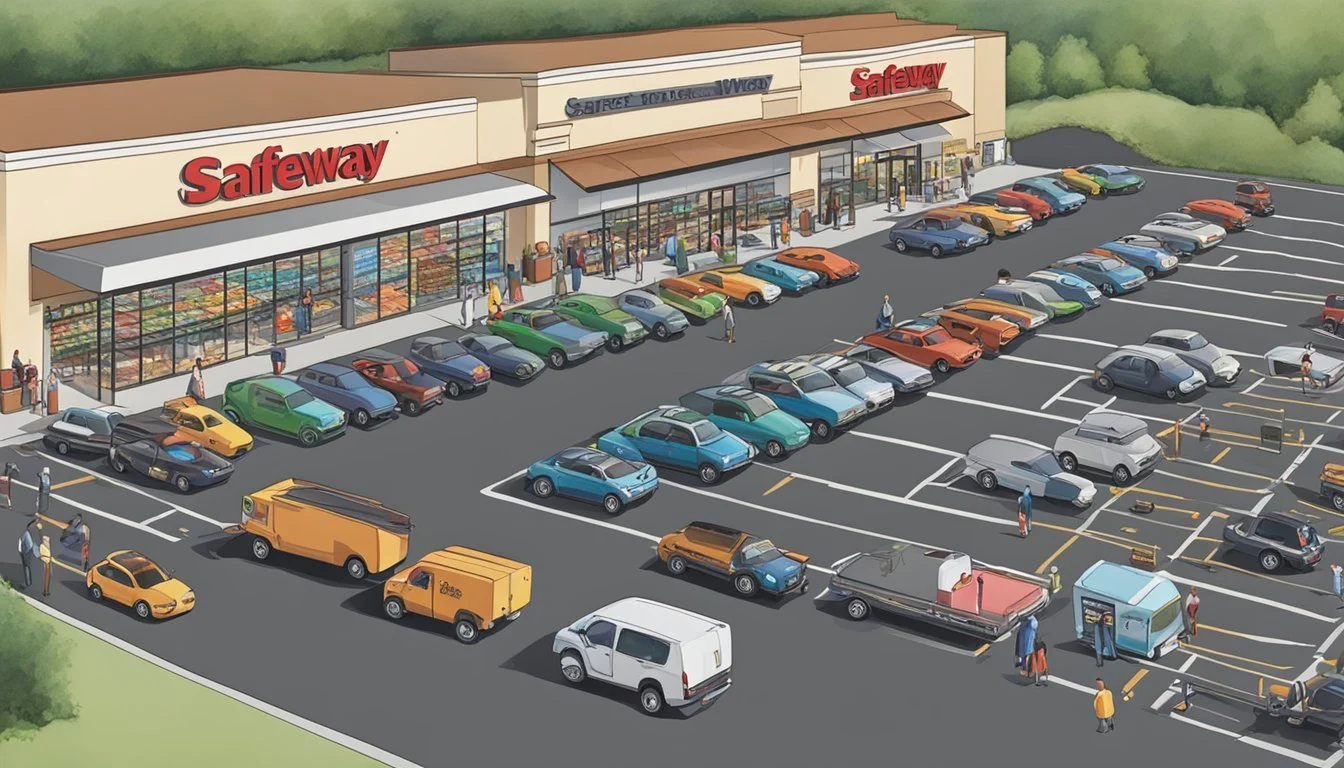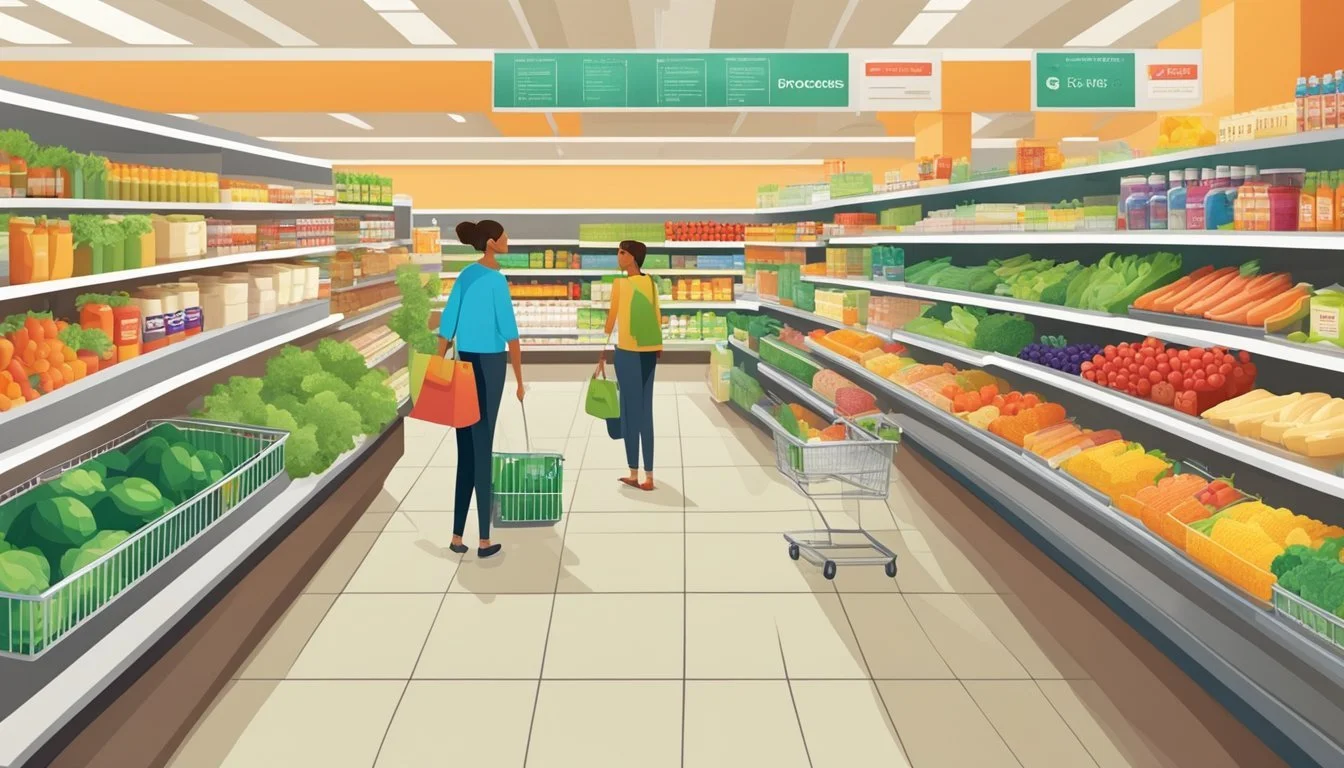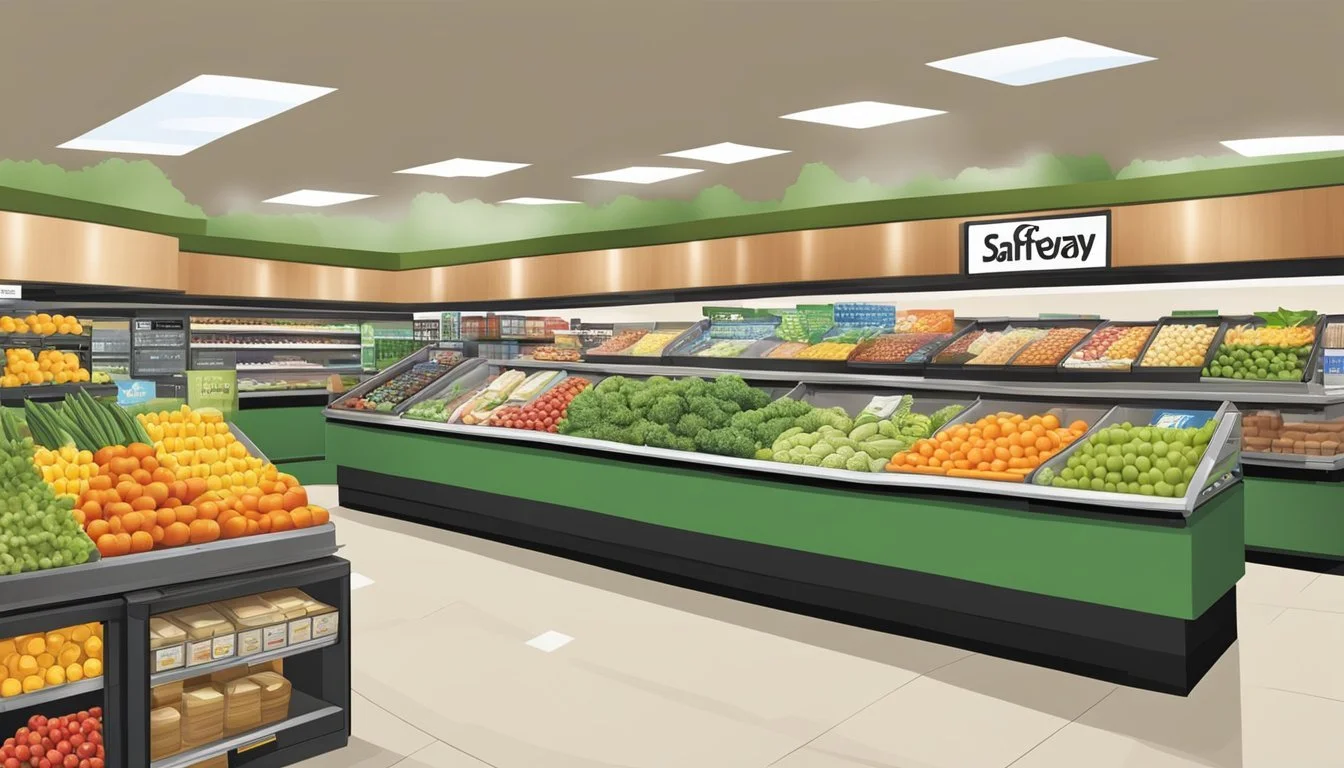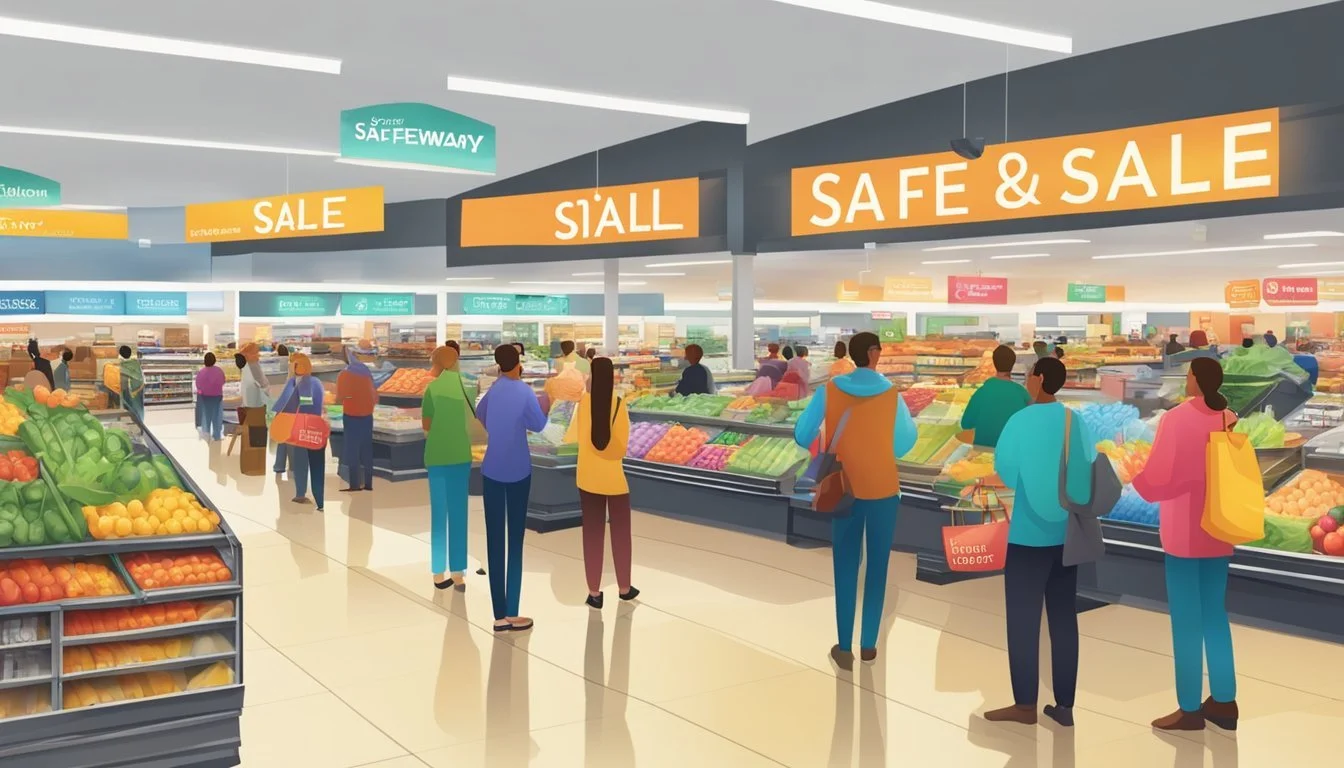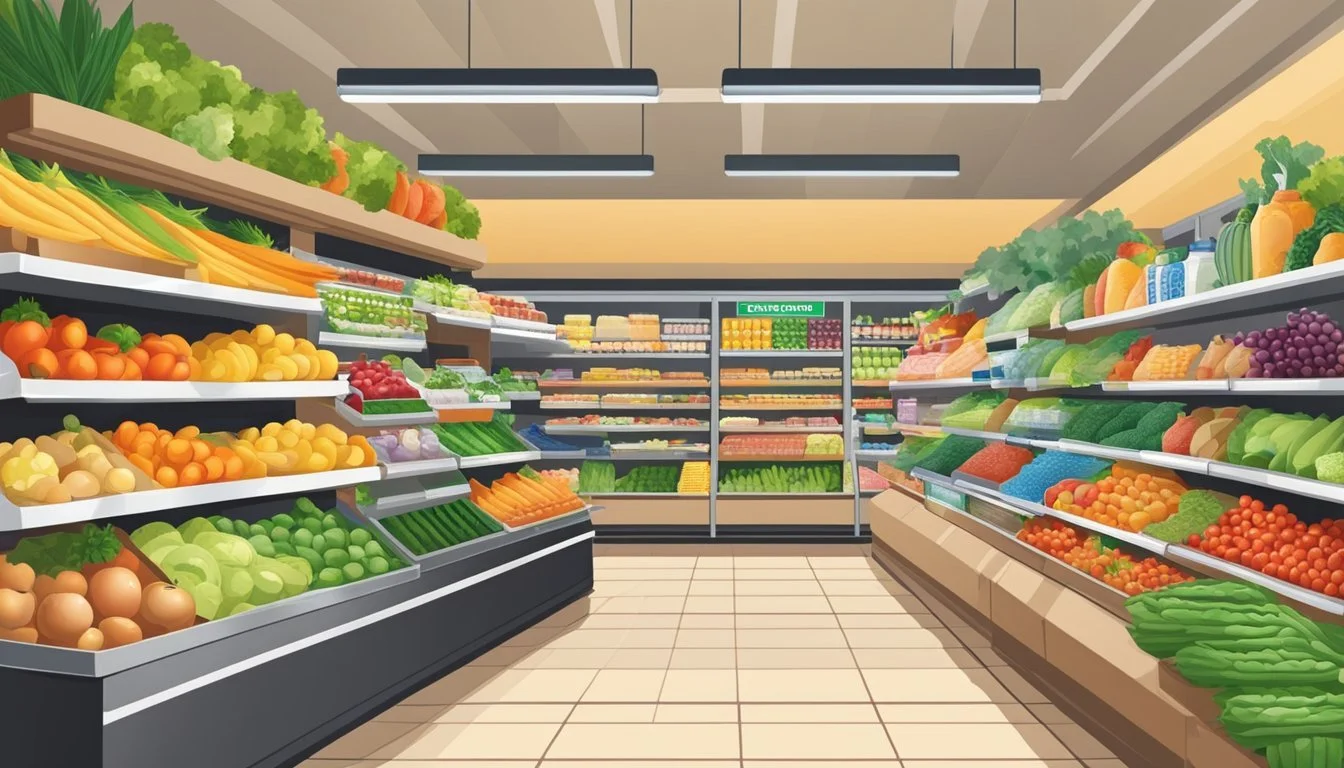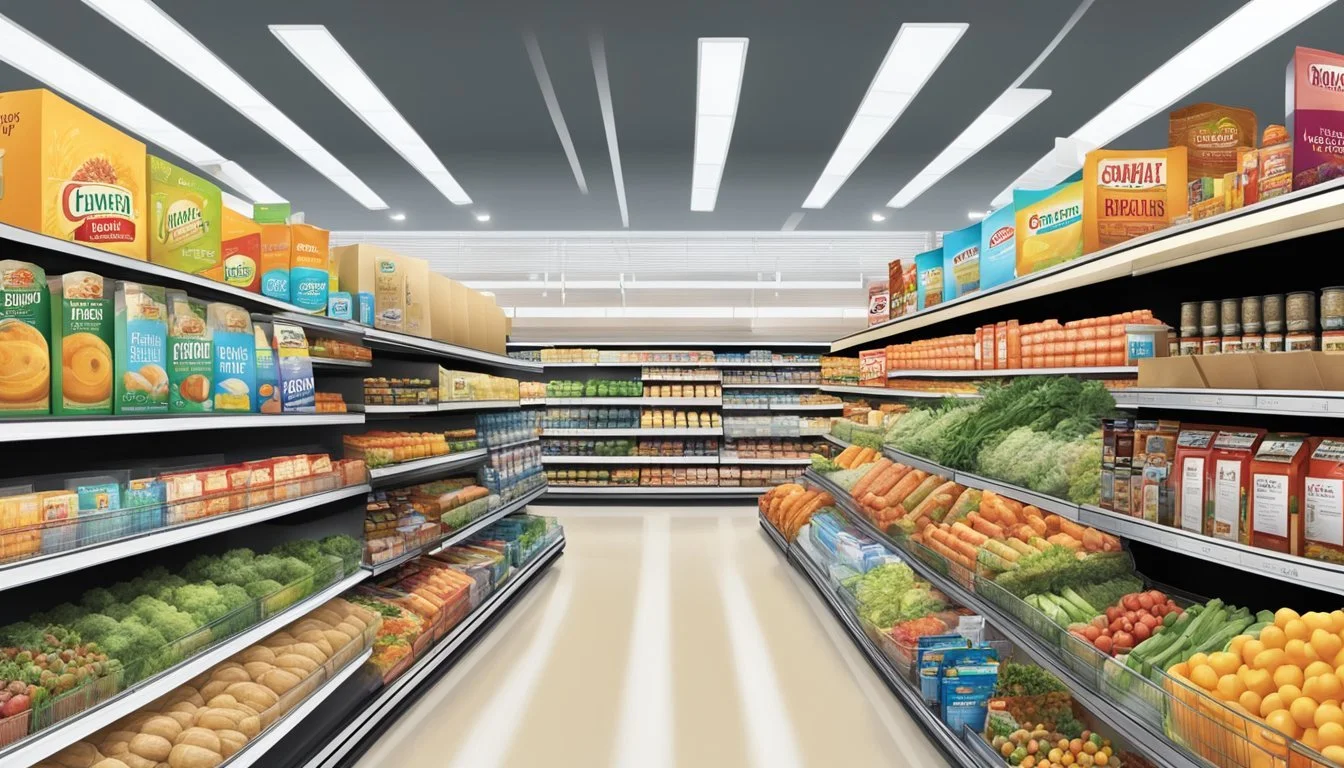Safeway vs Smart & Final
Comparing Prices, Selection, and Shopping Experience
Grocery shopping is a regular task for most households, and choosing the right store can make a significant difference in both quality and savings. Safeway and Smart & Final are two popular options that cater to different consumer needs.
Smart & Final offers lower prices overall, with costs about 6% less than Safeway for comparable items. This price difference can lead to substantial savings for families over time. However, price isn't the only factor to consider when selecting a grocery store.
Safeway is known for its wider selection of products and often provides a more traditional supermarket experience. Smart & Final, on the other hand, operates as a warehouse-style store without membership fees. Both stores have their strengths, and the best choice may depend on individual shopping preferences and priorities.
History and Business Models
Safeway and Smart & Final have distinct origins and business approaches that shape their current operations. Both companies have evolved over time to meet changing consumer needs while maintaining their core identities.
Safeway: Traditional Supermarket Roots
Safeway's history dates back to 1915 when M.B. Skaggs purchased a small grocery store in Idaho. The Safeway name was adopted in 1925, signifying the company's commitment to quality and value. By 1926, Safeway had become the largest grocery chain in the United States.
Throughout the 20th century, Safeway expanded its presence across North America. The company focused on providing a wide range of products in a traditional supermarket format. Safeway stores typically offer full-service departments like bakeries, delis, and pharmacies.
Today, Safeway operates as part of Albertsons Companies, one of the largest food retailers in the U.S. The chain maintains its emphasis on customer service and neighborhood-focused stores.
Smart & Final: Warehouse Club Hybrid
Smart & Final traces its roots to the Hellman-Haas Grocery Company, founded in Los Angeles in 1871. The modern Smart & Final brand emerged in 1953 when Jim Smart and Hildane Final acquired the company.
Smart & Final pioneered a unique business model, blending elements of warehouse clubs with traditional grocery stores. This approach allows them to offer bulk items and restaurant supplies without membership fees.
The company targets both household and business customers, including restaurants and caterers. Smart & Final stores are typically smaller than traditional supermarkets but larger than convenience stores.
In recent years, Smart & Final has expanded its fresh produce and household goods selections to appeal to a broader customer base. The chain now operates over 250 stores across the western United States.
Location and Accessibility
Safeway and Smart & Final have distinct store presence patterns in California and Arizona. Their distribution across metro areas impacts consumer access and convenience.
Store Presence in California and Arizona
Safeway operates over 240 stores in California and 115 in Arizona. The chain focuses on urban and suburban locations, with a strong presence in major cities. Smart & Final has approximately 250 stores in California but fewer in Arizona, with around 30 locations. Smart & Final targets a mix of urban and semi-rural areas, often positioning stores in smaller towns and communities.
Both chains have expanded their reach through strategic acquisitions and new store openings in recent years. Safeway's 2015 merger with Albertsons increased its footprint, while Smart & Final has grown steadily through organic expansion.
Metro Area Distribution
In major California metro areas like Los Angeles, San Francisco, and San Diego, Safeway stores are typically found in high-traffic residential neighborhoods. Smart & Final tends to locate in more diverse areas, including business districts and mixed-use zones.
Phoenix and Tucson in Arizona see a higher concentration of Safeway stores compared to Smart & Final. Safeway's deeper roots in the state contribute to its wider coverage.
Smart & Final's smaller store format allows for placement in areas where larger supermarkets might not fit, giving it unique positioning in some metro regions. This can provide an advantage in densely populated urban cores.
Price Comparison and Value for Money
Comparing prices between Safeway and Smart & Final reveals significant differences in cost for many common grocery items. These price variations can lead to meaningful savings for shoppers, especially on frequently purchased products.
Comparing Common Items
Smart & Final generally offers lower prices on many staple items compared to Safeway. For example, a gallon of milk at Smart & Final typically costs $0.50-$1.00 less than at Safeway. Similarly, eggs, bread, and fresh produce often have lower price tags at Smart & Final.
However, Safeway may have better deals on certain items, particularly when running sales or promotions. Their larger selection of brand-name products can sometimes result in competitive pricing for specific items.
Overall Cost Savings
Shopping at Smart & Final can lead to substantial savings over time. Families spending $250 weekly on groceries could potentially save 14-20% by choosing Smart & Final over Safeway. This translates to approximately $35-$50 in weekly savings.
Smart & Final's bulk-sized options and no-frills approach contribute to their lower prices. However, Safeway's loyalty program and frequent sales can help offset some of the price differences for regular shoppers.
It's important to note that prices can vary by location and season. Comparing current prices on your specific shopping list is the most accurate way to determine which store offers better value for your needs.
Quality and Variety of Products
Safeway and Smart & Final offer distinct product selections to cater to different customer needs. Their offerings vary in quality, freshness, and range across key grocery categories.
Fresh Produce and Organic Offerings
Safeway provides a robust selection of fresh produce, including a wide array of organic fruits and vegetables. Their produce department often features locally-sourced items and seasonal specialties. Smart & Final's produce section, while smaller, focuses on bulk quantities and value pricing.
Safeway's organic selection extends beyond produce to include dairy, meats, and packaged goods. Smart & Final carries some organic items but has a more limited range compared to Safeway.
Meat and Deli Sections
Safeway's meat department offers a variety of cuts, including prime and choice grades. Their full-service deli provides freshly sliced meats and cheeses, along with prepared foods and rotisserie chickens.
Smart & Final's meat section emphasizes larger packages and bulk options. Their deli offerings are more limited, often focusing on pre-packaged items rather than made-to-order options.
Generic Staples and Brand Selection
Smart & Final excels in bulk and generic staples, offering their First Street brand across numerous categories. This makes it popular for budget-conscious shoppers and small business owners.
Safeway carries a broader range of national brands alongside their Signature SELECT and O Organics lines. Their selection typically includes more specialty and gourmet items.
Both stores stock common household goods, but Safeway generally offers a wider variety of brands and package sizes to choose from.
Shopping Experience
Safeway and Smart & Final offer distinct shopping environments tailored to different customer needs. Their approaches to store layout and customer service shape the overall experience for shoppers.
Store Layout and Customer Navigation
Safeway stores typically feature a more traditional grocery layout. Aisles are organized by product categories, with produce, bakery, and deli sections along the perimeter. This familiar arrangement helps customers easily locate items.
Smart & Final takes a different approach. Their stores blend elements of a warehouse club with a conventional supermarket. Bulk items and restaurant supplies are prominently displayed alongside regular groceries. This can be advantageous for customers looking to buy in larger quantities.
Both chains use clear signage to aid navigation. Safeway often includes helpful aisle markers and product locators. Smart & Final's layout may require some adjustment for first-time shoppers due to its unique format.
Checkout Efficiency and Customer Service
Safeway emphasizes customer service, with dedicated staff at service counters and checkout lanes. They often offer both staffed and self-checkout options to reduce wait times. Loyalty programs and digital coupons can be easily applied at checkout.
Smart & Final focuses on efficiency, particularly for business customers. Their checkout process is designed to handle larger purchases quickly. Some locations have fewer checkout lanes but can process high-volume orders effectively.
Both stores provide assistance with bagging groceries. Safeway typically offers carry-out service, while Smart & Final caters to customers who may be purchasing for businesses and are accustomed to handling their own loading.
Customer service approaches differ. Safeway aims for a more personalized experience, while Smart & Final prioritizes speed and efficiency for its diverse customer base.
Family and Bulk Shopping
Safeway and Smart & Final cater to families and bulk shoppers in different ways. Their approaches to packaging, deals, and bulk offerings can significantly impact household budgets and shopping experiences.
Family-Size Packaging and Deals
Safeway provides family-size packages for many popular items. These larger quantities often come with per-unit savings. Families can find multi-packs of staples like cereal, snacks, and beverages. Safeway's Just for U program offers personalized deals on family favorites.
Smart & Final specializes in bulk sizes. Their shelves stock large packages ideal for big families. Many items come in commercial-grade containers, offering substantial savings. Smart & Final's club-size options span across categories from pantry goods to cleaning supplies.
Bulk Buying and Savings
Smart & Final excels in bulk offerings. Shoppers can purchase items by the case or in large quantities. The store features an extensive selection of products sold by the pound. This includes nuts, grains, and candies.
Safeway's bulk options are more limited. They focus on select items like produce, meat, and deli products. Safeway occasionally offers bulk deals during promotional periods. Their loyalty program sometimes includes bulk purchase incentives.
Smart & Final provides commercial-grade scales for precise bulk purchases. This allows customers to buy exactly the amount they need. Safeway typically pre-packages bulk items in set weights.
Special Offers and Sales
Both Safeway and Smart & Final employ various strategies to attract customers through discounts and promotions. These include regular sales, loyalty programs, and bulk purchase incentives.
Evaluating Sale Prices and Discounts
Safeway frequently runs weekly specials on various items throughout the store. These deals often provide significant savings on popular products. Smart & Final, known for its warehouse-style approach, offers competitive everyday prices and periodic discounts on bulk purchases.
Safeway's "Just for U" digital coupons allow customers to save on specific items tailored to their shopping habits. Smart & Final's "Smart Rewards" program provides personalized offers and cash back on qualifying purchases.
Both stores use loss leaders - deeply discounted items to draw customers in. These can result in substantial savings for savvy shoppers who plan their trips around these deals.
Membership Benefits and Warehouse Club Savings
While not a traditional membership-based store, Smart & Final positions itself as a "warehouse club without the membership fee." This approach allows customers to access bulk pricing without annual costs.
Safeway's Club Card provides free membership benefits, including special pricing on select items and personalized deals. Members can accumulate points for gas discounts at participating stations.
Smart & Final's business-focused offerings cater to small restaurants and event planners, with bulk packaging and volume discounts. This can benefit households looking to stock up on non-perishables or plan large gatherings.
Safeway's delivery and pickup services often come with promotional discounts for first-time users or during specific periods. Smart & Final's online ordering system provides convenience for bulk purchases.
Nutritional and Dietary Options
Safeway and Smart & Final both offer nutritional and dietary options to cater to health-conscious consumers. Safeway typically provides a wider selection of organic produce and health-focused products.
Smart & Final's organic offerings are more limited, but they still stock some organic fruits and vegetables. Both stores carry gluten-free, low-sodium, and sugar-free items for customers with specific dietary needs.
Safeway's O Organics line includes a variety of organic products across multiple departments. This makes it easier for shoppers seeking organic options throughout their grocery list.
Smart & Final focuses more on bulk purchases, which can be beneficial for those following specific diets or meal plans. Their larger package sizes allow for better price points on some healthier items.
Both stores offer fresh produce sections. Safeway generally has a more extensive selection of fruits and vegetables, including some lesser-known or specialty items.
Nutritional information is clearly displayed on packaged products in both stores, helping customers make informed choices about their food purchases.
Smart & Final's limited assortment may make it challenging for those with very specific dietary requirements. Safeway's broader range of products often better accommodates special diets.
Convenience Services
Safeway and Smart & Final offer various services to enhance customer convenience and save time. Both chains have adapted to meet evolving shopper needs through digital options and ready-to-eat offerings.
Grocery Pickup and Delivery Options
Safeway provides extensive online shopping capabilities. Customers can order groceries for same-day delivery or pickup through the Safeway website or mobile app. The chain offers a subscription service called FreshPass, which includes free delivery on orders over $30.
Smart & Final also offers online ordering and delivery through third-party services like Instacart. Their pickup options are more limited compared to Safeway, with fewer store locations offering this service.
Both stores have expanded their digital presence to cater to customers who prefer shopping from home or on-the-go.
Prepared Foods and Meal Solutions
Safeway stores typically feature larger deli and bakery departments with a wide selection of prepared foods. Many locations offer hot food bars, salad bars, and made-to-order sandwiches. The chain also sells pre-packaged meal kits and ready-to-cook options for quick dinners.
Smart & Final focuses more on bulk and value offerings. Their prepared food section is generally smaller, but they do offer some ready-to-eat items like rotisserie chickens and pre-made salads. The store carries a variety of frozen meals and convenience foods for shoppers seeking quick meal solutions.
Both chains stock a range of heat-and-eat options to cater to busy customers looking for convenient meal alternatives.
Brand Loyalty and Customer Retention
Safeway and Smart & Final employ different strategies to build brand loyalty and retain customers. Safeway focuses on creating a loyal following through its Just for U personalized savings program. This digital platform offers customized deals and discounts based on shopping habits.
Smart & Final takes a different approach, emphasizing its unique product mix of bulk items and individual groceries. This strategy aims to attract both business and household customers, fostering loyalty through convenience and value.
Both chains recognize the importance of customer retention:
Safeway: Offers a robust rewards program, digital coupons, and personalized promotions
Smart & Final: Provides a no-membership-required warehouse experience with competitive pricing
Safeway's loyalty program allows the company to gather valuable customer data. This information helps tailor marketing efforts and improve the shopping experience, potentially increasing customer retention rates.
Smart & Final's brand loyalty efforts center on its distinctive store format and product selection. By catering to a specific niche, the chain aims to create a dedicated customer base that returns for its unique offerings.
Effective customer retention strategies for both stores include:
• Consistent pricing and promotions • High-quality fresh produce and meats • Excellent customer service • Clean and well-organized store layouts
These factors contribute to positive shopping experiences, encouraging customers to return and fostering long-term brand loyalty.
Comparative Analysis: Summary of Findings
Safeway and Smart & Final offer distinct shopping experiences for consumers. Safeway provides a traditional supermarket format, while Smart & Final operates as a warehouse-style store without membership fees.
Price comparisons reveal Smart & Final often has lower prices than Safeway. Studies show Smart & Final's prices are approximately 14% below average, potentially saving families $35 weekly on a $250 grocery budget.
Smart & Final excels in bulk purchases and restaurant supplies. Safeway stands out with a wider selection of branded products and fresh produce.
Both chains face competition from discount retailers:
Grocery Outlet: 22% below average prices
FoodMaxx: 21% below average
Foods Co: 20% below average
Walmart: Consistently low prices nationwide
Other notable competitors include:
Sprouts Farmers Market: 14% below average, emphasizing fresh produce
WinCo: Known for competitive pricing
Trader Joe's: Popular for unique, affordable products
Safeway's parent company, Albertsons, gives it greater market presence. Smart & Final's smaller footprint limits accessibility for some shoppers.
Online shopping options differ. Safeway offers extensive delivery services, while Smart & Final's e-commerce capabilities are more limited.
Customer loyalty programs vary. Safeway's Just for U program provides personalized deals. Smart & Final's rewards system is less comprehensive.


